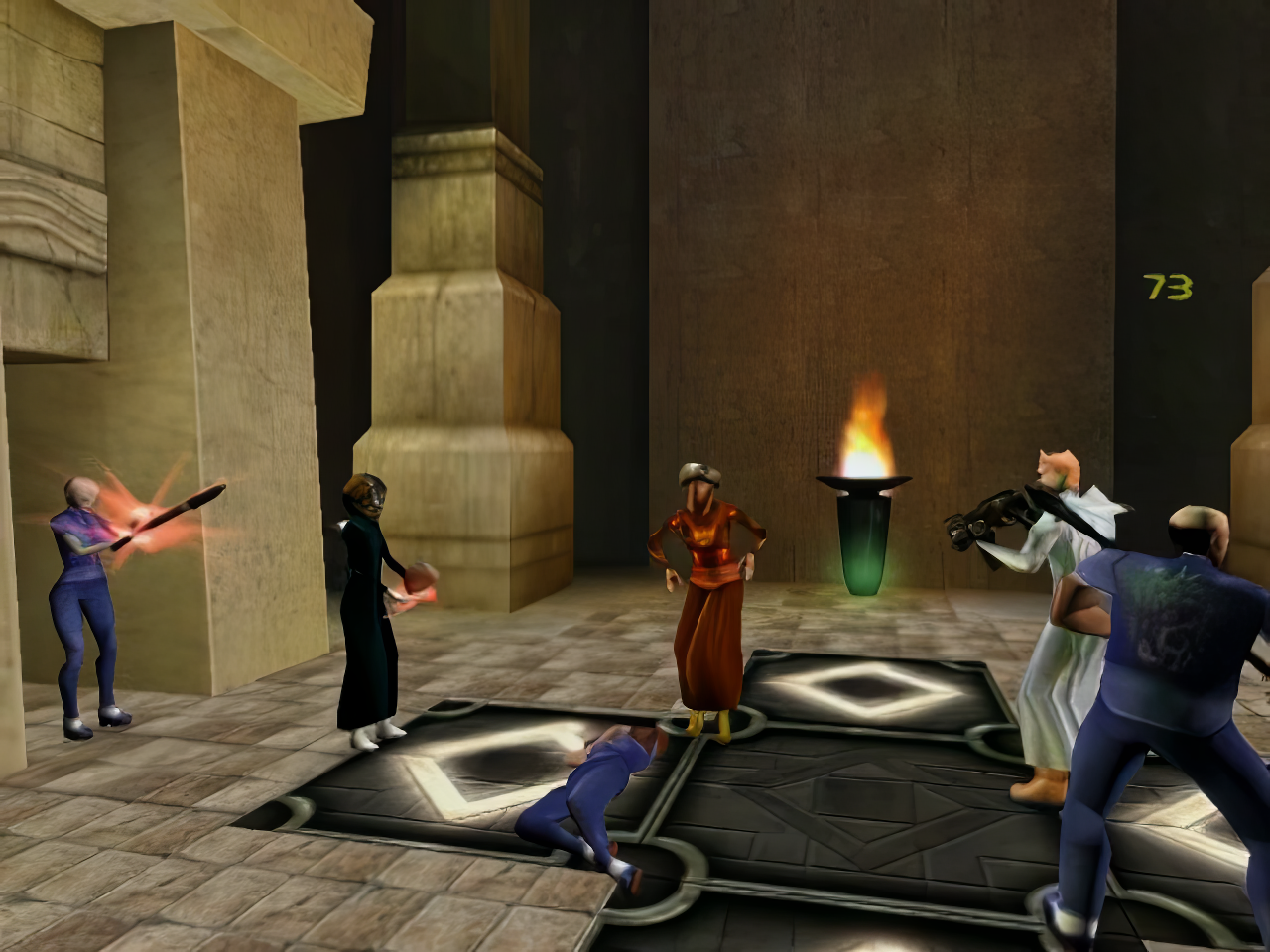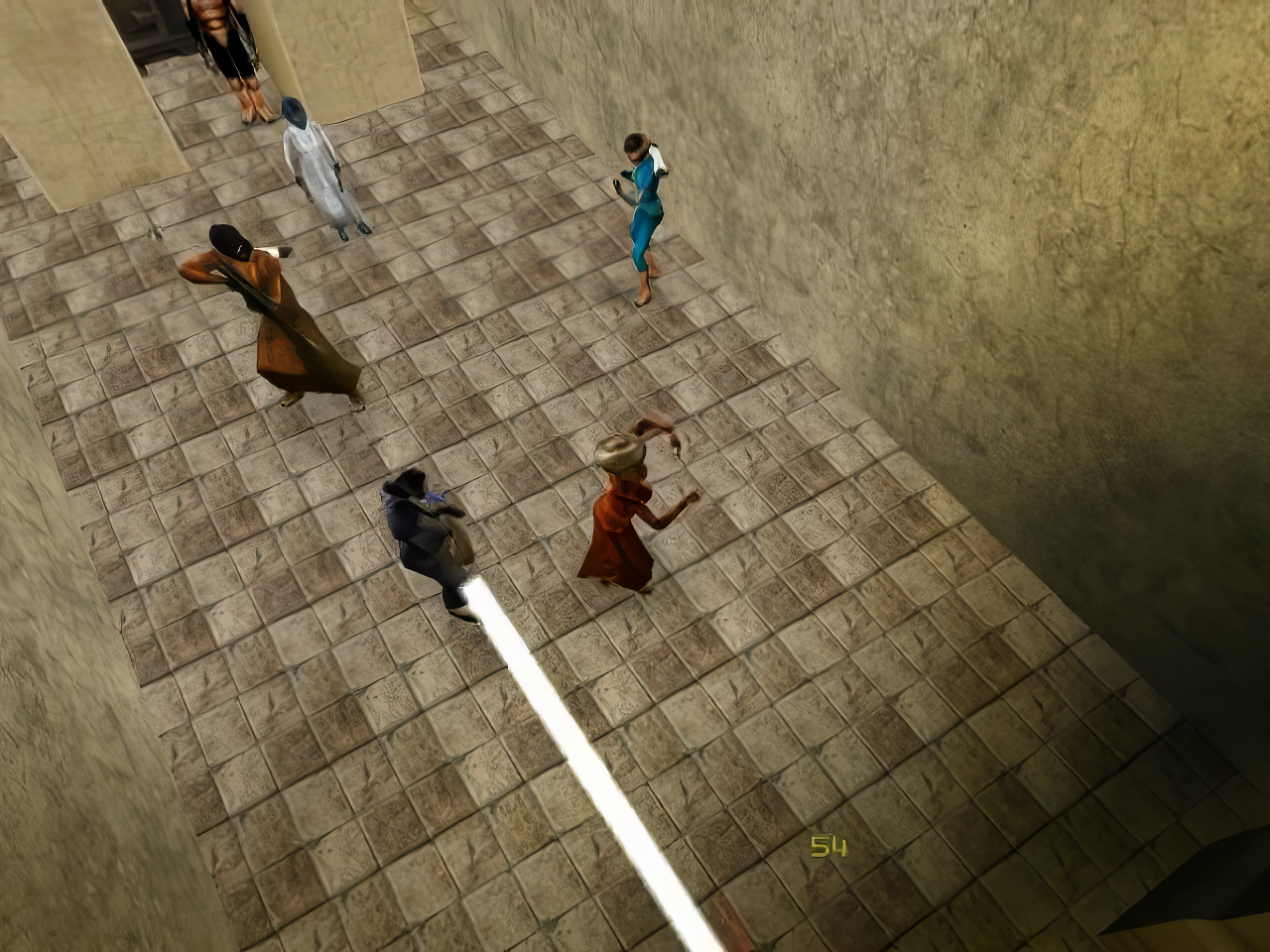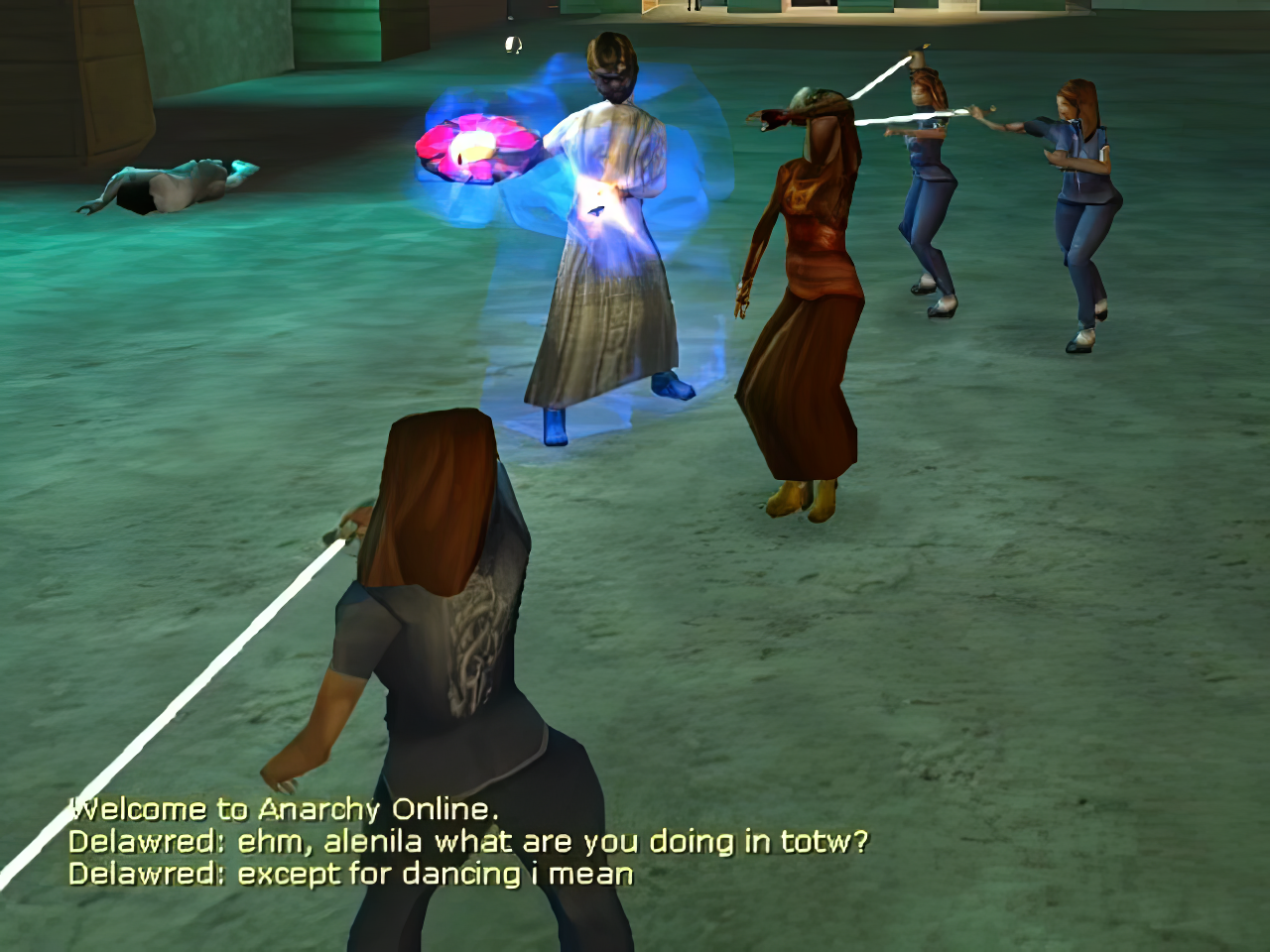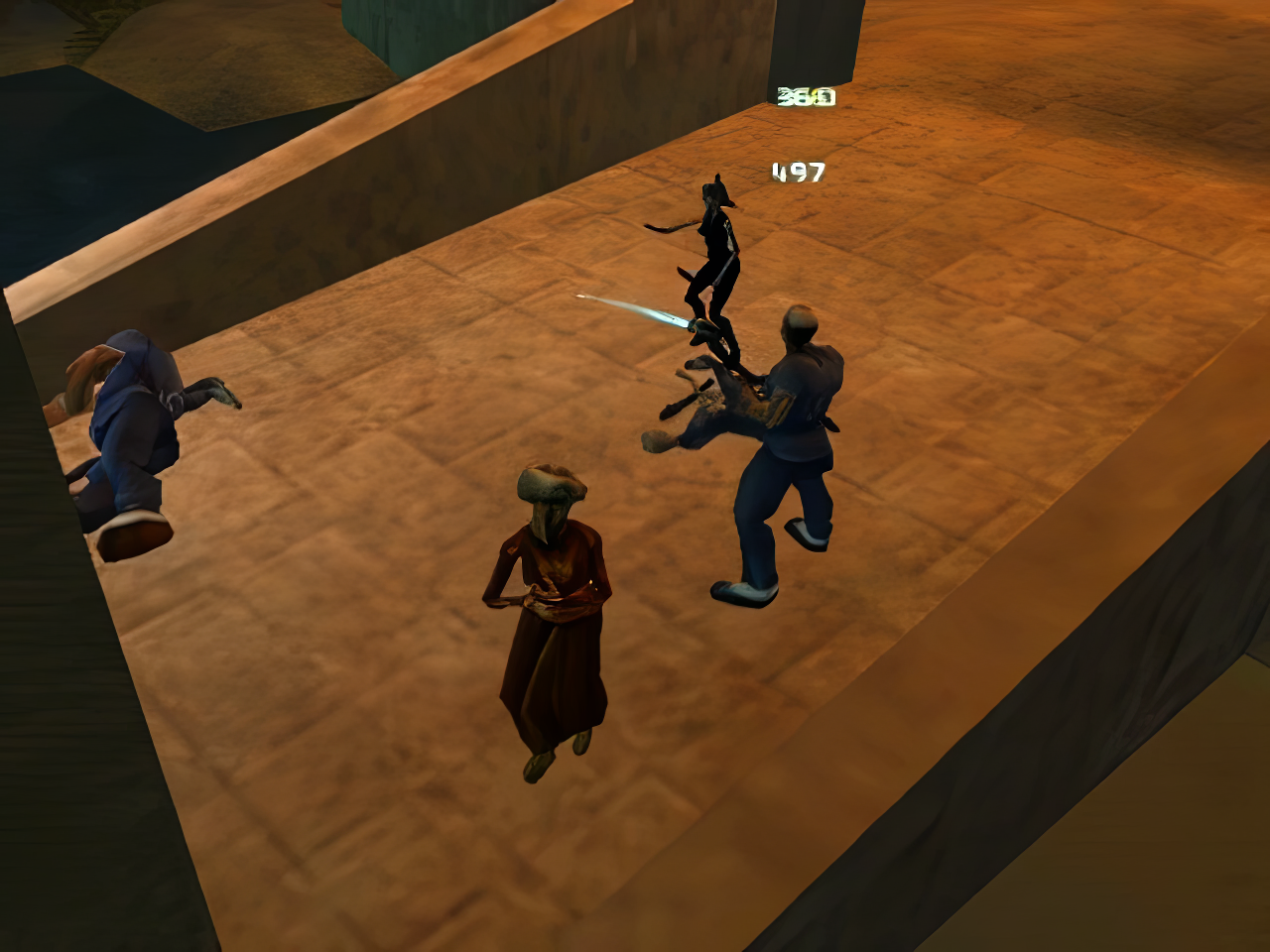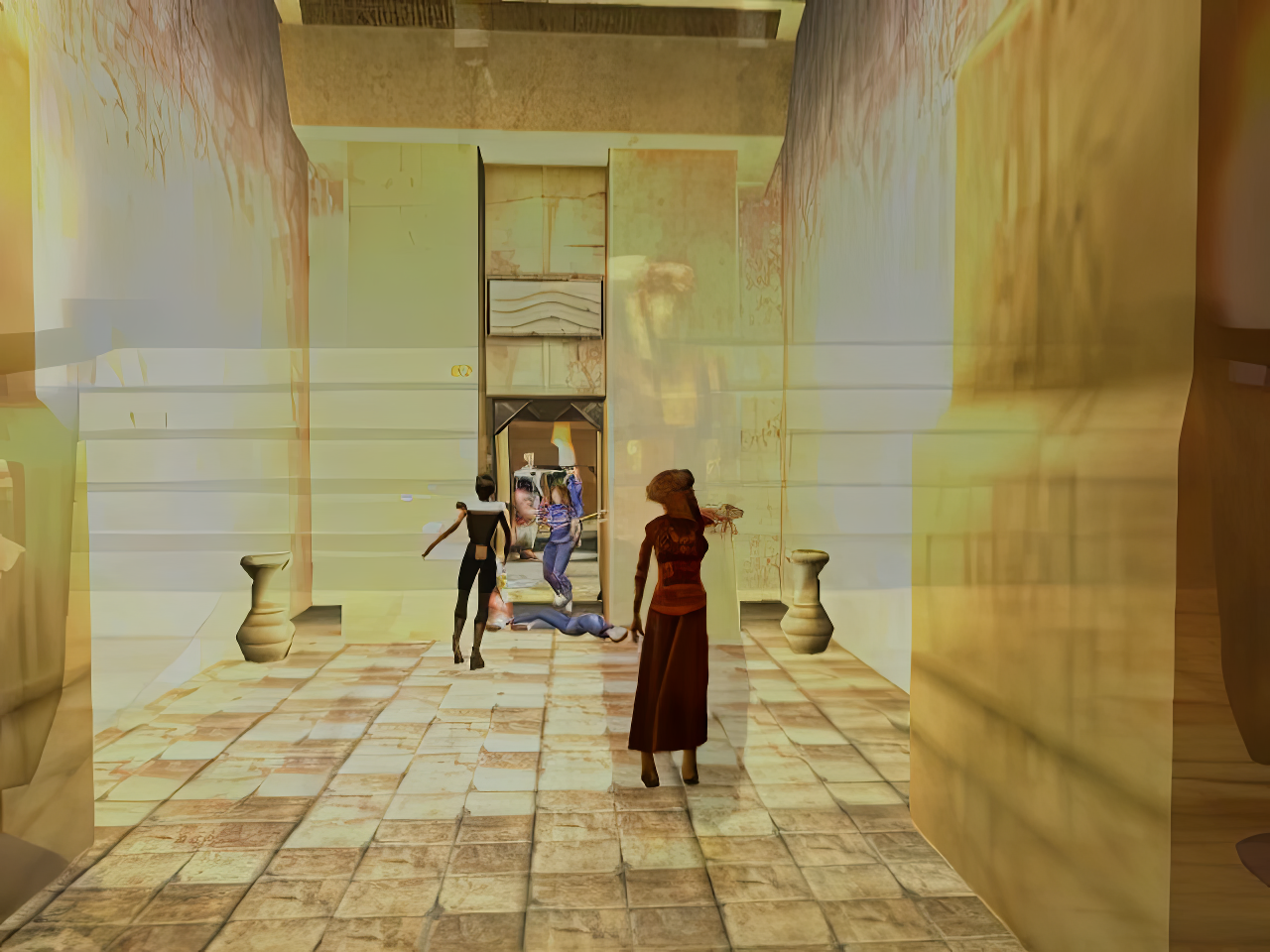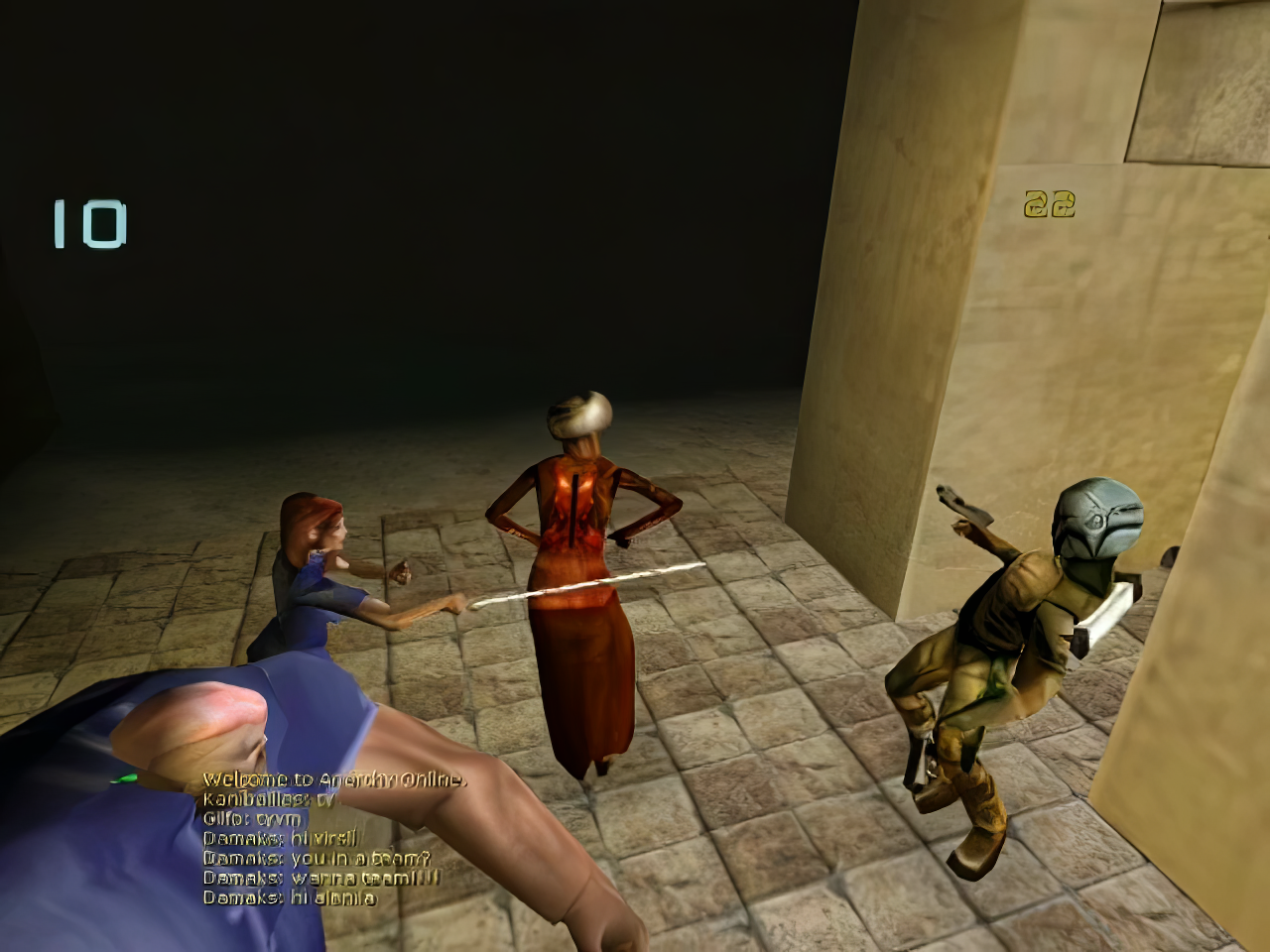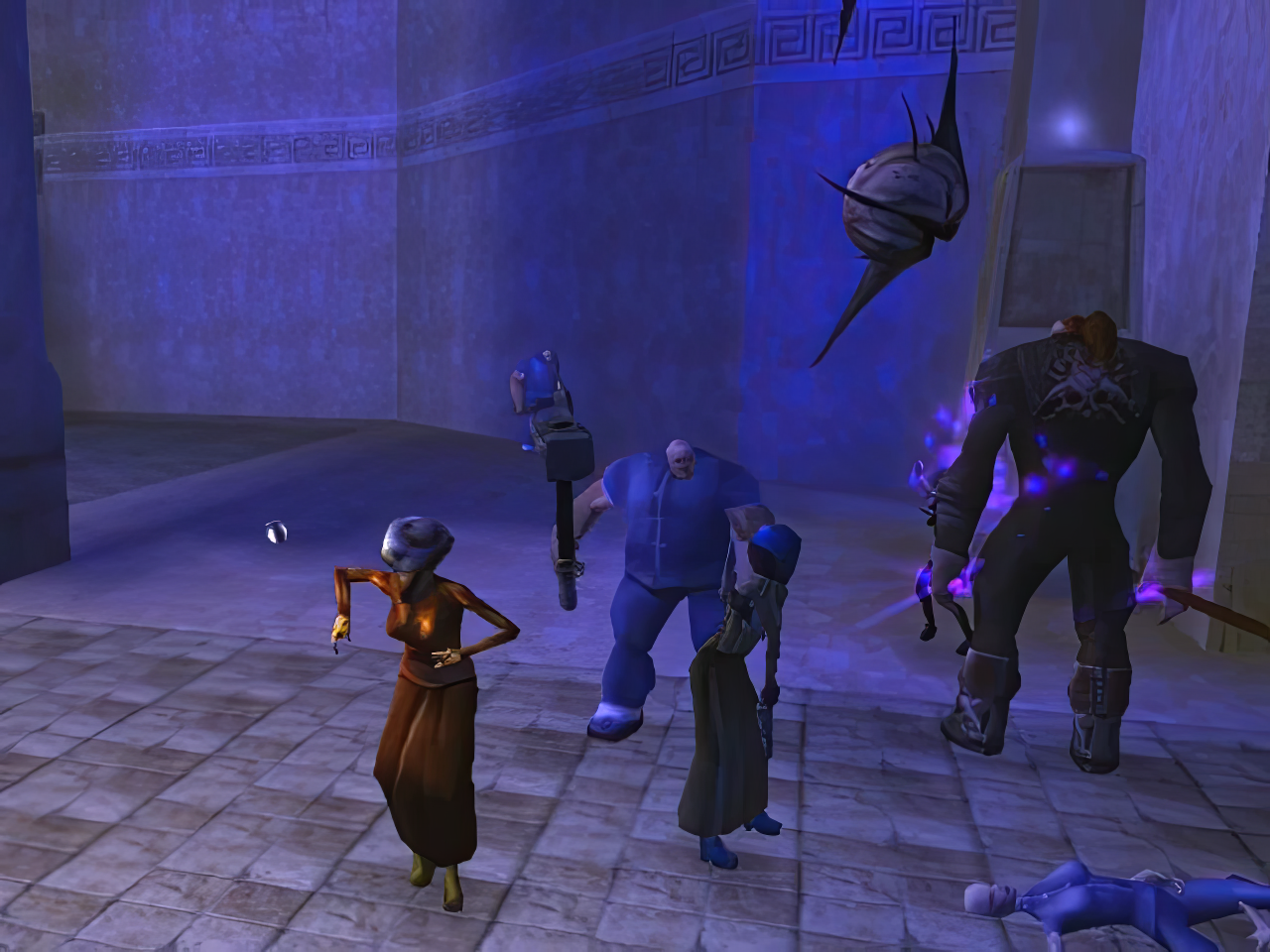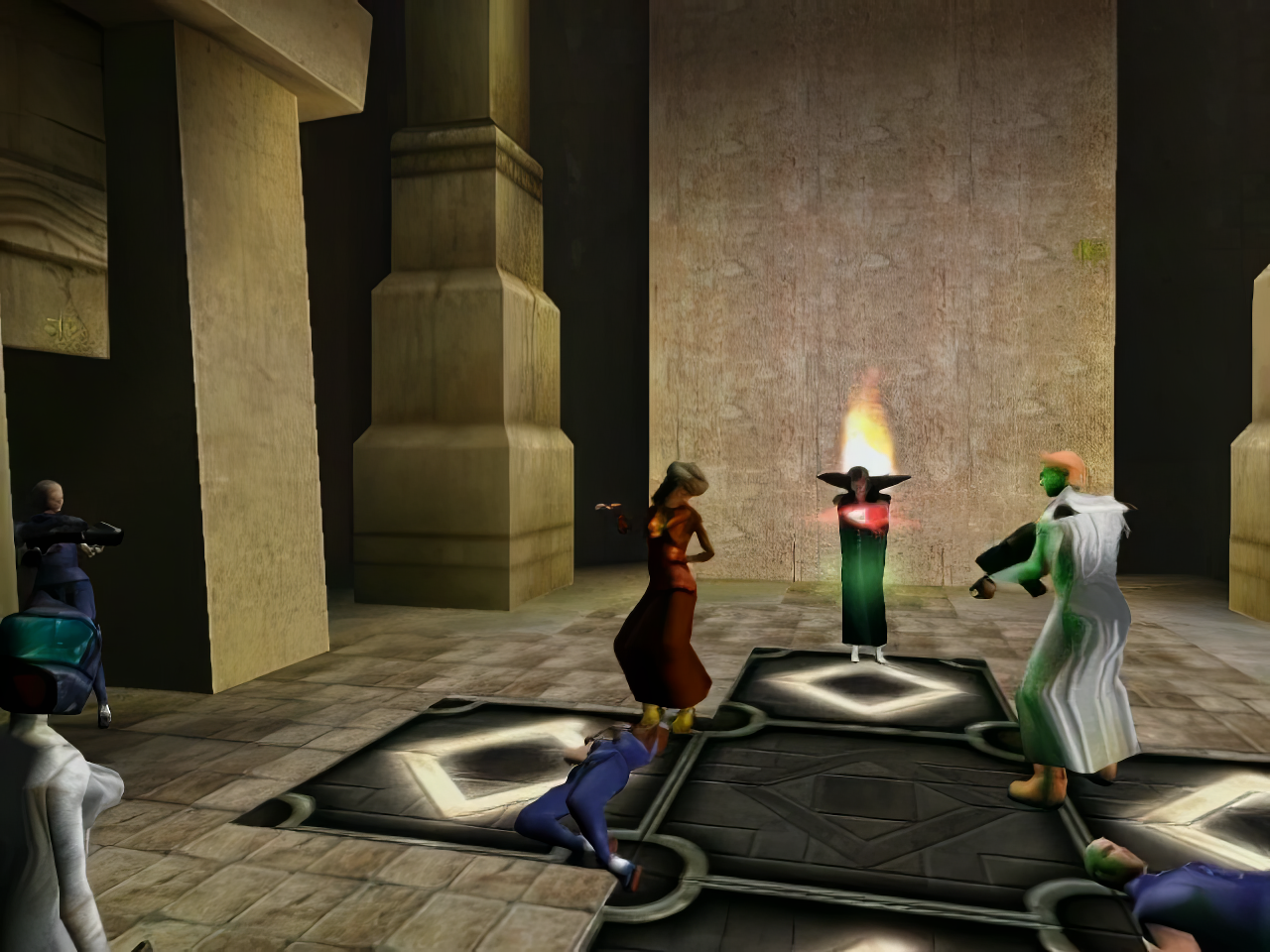VRAL is currently showcasing Parallel V by Hui Wai-Keung, a work that serves both as a sequel and an homage to Harun Farocki’s Parallel I-IV series (2012-2014). To provide a comprehensive context for this piece, we delve into the artist's oeuvre, beginning our critical examination with No Play Today (2005).
In October 2005, artist Hui Wai-Keung staged a subversive intervention within the sprawling virtual world of the massively multiplayer online role-playing game (MMORPG) Anarchy Online (2001). For days, his avatar Alenila defiantly danced amidst the chaos of the Temple of the Three Winds, a notoriously fierce battlefield where players typically hack and slash to progress, not pirouette. This apparent non sequitur – out-of-place dancing rupturing a space reserved for programmed violence and brutal conquest – forms the basis of Hui’s provocation titled No Play Today. At once absurd, futile and profound, his choice to inject poetic play into pre scripted gameplay remains significant on multiple levels.
First and foremost, No Play Today complicates the relationship between play and modern video game environments. As Hui elucidates, the expected form of “play” in spaces like MMORPGs largely replicates hegemonic power structures, privileging might and domination. Players internalize capitalist mandates valorizing ceaseless competition, individualism, and instrumental exploitation. Those flouting these agendas face quizzical, even hostile resistance from game communities invested in established hierarchies. Why dance when one could (should) fight? Any such spontaneous expressions violating this ingrained social code threaten the status quo.
Yet Hui’s intervention also suggests emancipatory potential still dormant and underdeveloped in these virtual play spaces. His dancing avatar becomes a zany performance event, generating liminal spaces where the assumptions are actively sabotaged. Relying on sheer spectacle to disarm players and reject genre conventions, Hui replaces individualism with a communal, aesthetic experience. A fellow player even spontaneously joins in this triumphant deviance, discovering alternative relations founded on wonder rather than antagonism. However brief before reprisals resume the rupture hints that regimes of separation are not total. Unscripted connections remain possible. One is reminded of Joseph Delappe’s dead-in-iraq (2006-), in which the emergent gameplay (writing the names of the fallen American soldiers in a video game chat as an anti-violence statement) is quickly squashed by annoyed players.
Apropos DeLappe we can situate No Play Today in a trajectory of related performative interrogations of gaming space. Notably, the seminal 2002 project Velvet-Strike provides a resonant precedent of artistic intervention disrupting the dominant gameplay. The eponymous downloadable software package by Anne-Marie Schleiner, Joan Leandre and Brody Condon enabled participants to “spray” pacifist messages and images as graffiti amidst standard death match fury in Counter-Strike. This act of disseminating rainbows or daisies rather than employing firearms to annihilate other players, sardonically questioned the erasure of empathy encouraged by first-person shooters.
No Play Today continues this tradition of employing jarring aesthetic dissonance to…
Matteo Bittanti
Works cited
Hui Wai-Keung, No Play Today, in-game performance in Anarchy Online, 2005 hereby shown as a machinima documentation, color/sound, 5’ 37”, 2005.
Hui Wai-Keung, Parallel V, digital video, single-channel-projection, color, sound, 26’ 14”, 2023.
Pippin Barr, Let’s Play: Ancient Greek Punishment, video game, 2011.
Anne-Marie Schleiner, Joan Leandre and Brody Condon, Velvet Strike, modification of Counter-Strike, 2002. (recommended: Rhizome's critical text about this work)
This content is exclusive to Patreon subscribers. To gain full access, consider joining our vibrant community.


